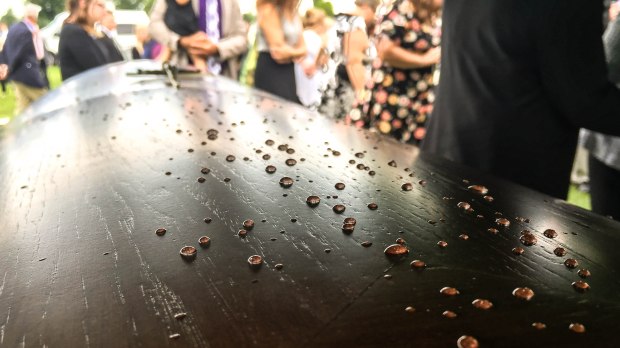One of the hardest metaphysical realities, taught to us both by Christ and through nature, is finding new life through death. Creation is continuously dying, and through that death, is being created anew. I don’t like this process. It’s agonizing. Why does beauty lie in the broken?
Without peace, there is no, well … peace. This is not the 1960s adaptation of freedom without consequence, which allows for temporary feelings of unattachment, through the lack of fulfilling healthy relationships and the responsibility of state of life. Lasting peace is not found there.
The philosophy of lasting peace had been taught to us by its master, Jesus Christ, centuries ago. Yet, the message was just as confusing then as it is today.
“Unless a grain of wheat falls to the ground and dies, it remains just a grain of wheat; but if it dies, it produces much fruit” (Jn 12:24-26). Sure! I can relate to this, as long as we’re talking about wheat. Having not been a farmer, I never knew the grain actually “died” to produce fruit. I just thought of it as growing – fulfilling its purpose as a grain.
I mean, what good is a grain of wheat if it only remains a grain? And … there it is!
There are many times when I prefer to remain a grain of wheat. Perhaps, in my apathy, I am even okay with being pushed aside and discarded with the other rotten grains. It’s not the concept of producing good fruit that leaves me stagnant, but rather the obstacle of death that lies between my current state and my purpose.
Lord, why must we die?
When I was a young adult, I noticed that I gravitated toward the temporal – an urge fueled by envy that I fought ardently. I was captivated by center stage, and climbing the ladder toward recognition and fame. Yet, I prayed that the Lord, in his wisdom, would do what he willed for me, and not what I willed.
That prayer wound up being the best of prayers, and through the years, that part of me experienced a slow death. As it died, it cried out, and I thought that surely I was losing something of myself. It turns out that I lost a deadly sin!
Recently, I began to realize that I am attracted to those behind the scenes, and not on center stage. I met a Franciscan Brother, whose job was to drive priests from place to place. Some of the priests he drives have gained quite a bit of popularity throughout the years. They are regulars on television, have authored books, and can be easily recognized by the public.
Yet, I was so drawn to the service of the Brother, who had spent many hours with these men, but had shared few words with them. He could not boast of many things, other than being in the constant presence of saints.
Service can be a slow death at first, to one whose heart has not be taught to serve. In many situations, I am a grain of wheat; reluctantly buried, reluctantly dying, humbly resurrected in the fruit of charity.
There is a quote that I love from Ann Voskamp’s book, One Thousand Gifts:
The seed breaks to give us the wheat. The soil breaks to give us the crop, the sky breaks to give us the rain, the wheat breaks to give us the bread. And the bread breaks to give us the feast. There was once even an alabaster jar that broke to give him the glory … Never be afraid of being a broken thing.
I love it because it captures the sentiment of my heart – I am a broken thing, but I am afraid of being a broken thing. I resist death, even when the Father promises new life. My brokenness lies in control, which may be the opposite of what was sought after in the free-loving 60s, but it produces the same end: fear, a lack of trust, and clinging to my life as a grain of wheat.
Peace I leave with you; my peace I give to you; not as the world gives do I give to you. Let not your hearts be troubled, neither let them be afraid. –John 14:27
… and let us not be afraid of being a broken thing.

